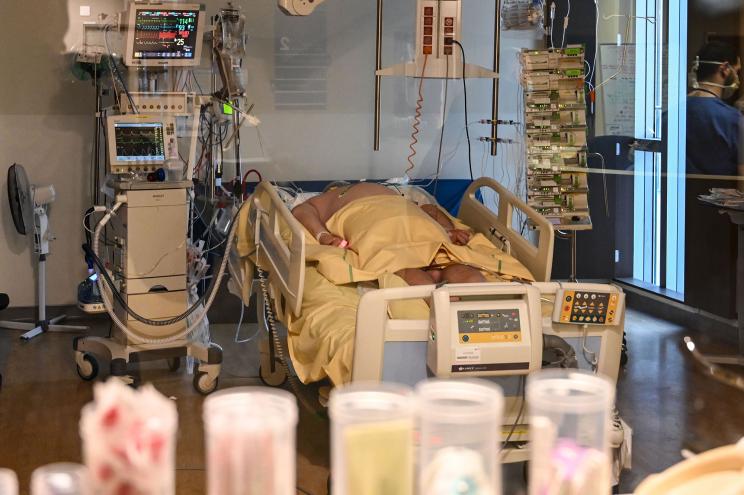A team of Danish researchers claims that artificial intelligence software they have developed can predict – with 90 percent accuracy – whether an uninfected person will die from COVID-19.
The University of Copenhagen researchers fed a program health data, including underlying medical conditions, from 3,944 Danish coronavirus patients, eurekalert.org reported.
They “trained” the computer program to recognize patterns in the patients’ prior illnesses — and found that body-mass index, or BMI, age, high blood pressure and being male were the highest risk factors.
Once admitted to a hospital with COVID-19, the computer also can predict with 80 percent accuracy whether the patient will need a respirator, according to the study.
“We began working on the models to assist hospitals, as during the first wave, they feared that they did not have enough respirators for intensive care patients,” said Professor Mads Nielsen of the University of Copenhagen’s Department of Computer Science.
“Our new findings could also be used to carefully identify who needs a vaccine,” he added.
“Our results demonstrate, unsurprisingly, that age and BMI are the most decisive parameters for how severely a person will be affected by COVID-19. But the likelihood of dying or ending up on a respirator is also heightened if you are male, have high blood pressure or a neurological disease,” Nielsen added.
In order of priority, the conditions that have the most influence on whether a patient ends up on a respirator after being infected with COVID-19 are BMI, age, high blood pressure, being male, neurological diseases, chronic obstructive pulmonary disease, asthma, diabetes and heart disease.
“For those affected by one or more of these parameters, we have found that it may make sense to move them up in the vaccine queue, to avoid any risk of them becoming infected and eventually ending up on a respirator,” Nielsen said.
“We are working towards a goal that we should be able to predict the need for respirators five days ahead by giving the computer access to health data on all COVID positives in the region,” he continued.
“The computer will never be able to replace a doctor’s assessment, but it can help doctors and hospitals see many COVID-19 infected patients at once and set ongoing priorities,” Nielsen said added.








